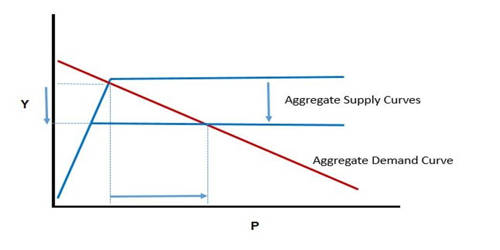Sovereign default occurs when a country is unable to repay its debt obligations to its creditors, including both domestic and foreign lenders. Bondholders monitor a sovereign entity’s political stability and the financial environment when investing in sovereign debt to determine the risk of sovereign default. Despite the fact that sovereign countries are not subject to bankruptcy laws, as companies and individuals are, cases of sovereign default are common and are preceded by an economic crisis.
The reasons for sovereign default can vary, but some common causes include:
- Change of Government
Formal transitions from one elected government to another may not affect the treasury obligations created by previous governments. When a regime change occurs as a result of a military coup or a revolutionary situation, the incoming government may question the legitimacy of previous debts and suspend the repayment of current debts.
- Illiquidity
A country is in default due to illiquidity when it is temporarily unable to meet principal and interest payments because its asset base cannot be liquidated quickly. Illiquidity is regarded as a temporary setback because illiquid assets can become liquid again after a certain period of time. If the assets cannot be sold immediately to raise capital, the state will be unable to generate enough cash flows to meet principal and interest payments.
- Insolvency
Insolvency occurs when a country is no longer able to honor its debt obligations and faces a sovereign default. A country may declare insolvency for a variety of reasons, including significant increases in public debt, dissatisfaction with austerity measures implemented to repay debt, increased unemployment, and increased government regulations on financial markets.
- Economic Factors
Economic factors such as high unemployment, low economic growth, inflation, and trade deficits can weaken a country’s ability to repay its debts. Economic crises can also lead to sudden drops in revenue and increased borrowing costs.
- Political Factors
Political instability and uncertainty can discourage foreign investors and lenders from investing in a country, leading to a decline in revenue and an increase in borrowing costs. Political instability can also result in government inefficiencies, corruption, and poor decision-making, all of which can negatively impact a country’s financial situation.
- External Factors
External factors such as changes in global commodity prices, fluctuating exchange rates, and unexpected events such as natural disasters, war, or terrorism can also impact a country’s financial situation, making it difficult to repay its debts.
- Overborrowing
A country may also default if it has borrowed too much and is unable to service its debts. This could occur if the country has overestimated its ability to generate revenue or if its borrowing costs become too high.
Sovereign insolvency occurs after years of overspending and emergency budgets, with the deficit being settled using new debts from domestic and international investors. It’s important to note that sovereign default is a complex issue and can result from a combination of these factors. Understanding the causes of sovereign default is critical for policymakers and investors, as it can help prevent future defaults and minimize their impact when they do occur.
















